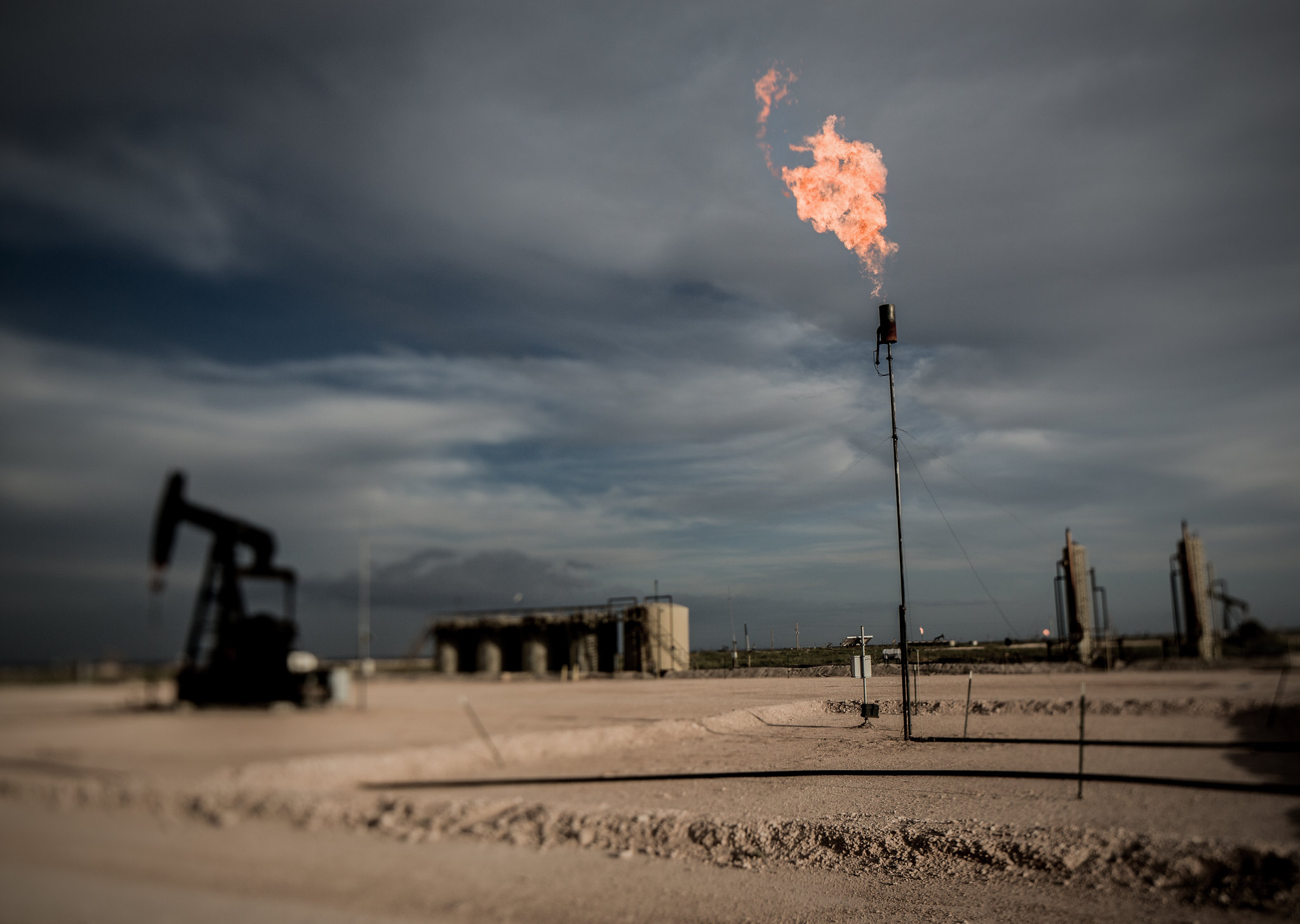An oil-rich region of West Texas is about to get more than half a billion dollars in highway funds so it can continue to pump crude oil and frack natural gas out of the earth's crust — perpetuating a cycle that is causing the destruction of human civilization.
The Texas Transportation Commission is set to approve $600 million on Thursday to widen highways and intersections, lessen traffic congestion, and improve roadway safety for trucks in the Permian Basin. The funding is part of the state's 10-year, $75-billion construction budget that comes from a mix of federal and state allocations, 97 percent of which is mandated to go toward roadways, Texas DOT officials said.
The remaining 3 percent gets divided among light rail systems, bus transit, and cycling and pedestrian infrastructure, although little appears to be headed to West Texas anytime soon. A Texas DOT spokeswoman declined to comment about the funding package ahead of the commission's vote.
"Transit out in West Texas is pretty far and pretty wide in between," Texas Rail Advocates president Peter LeCody told Streetsblog. "With all the fracking and oil development going on in West Texas and heavy tractor trailers bringing in supplies down the road, highways have been beat down by heavy truck traffic. There aren't too many rail lines that run through West Texas — most of them have been pulled up in the 1950s and '60s when railroads consolidated."
Instead, the region is going all in on road transport — building more roads so that more fuel can be exploited ... so that more cars can burn it. Etc. etc. etc.
And it's all enabled by the region's oil-slicked political elite.
“If we don’t have good roads, if we don’t have the best schools, if we don’t have quality health care, if we don’t have affordable housing, if we don’t have programs to develop the workforce of the future out here, then this incredible gift will not be optimized," Permian Strategic Partnership Chairman Don Evans told the Midland Reporter-Telegram. "We have more work to do. We can’t rest on our laurels, but we would be very pleased."
The 86,000-square-mile region which contains Midland, Odessa, greater El Paso and parts of southeastern New Mexico, has 468,609 people, or about 1.6 percent of the state's population. More than three-quarters of Texas's 28.7 million population lives east of Interstate 35 and within the Dallas-San Antonio-Houston triangle.
The area happens to be home to a third of the nation's oil production, roughly 4 million barrels of oil a day. That's up from just 1 million per day a year ago and energy analysts predict that output could double by 2023 to 8 million a day.
The region is growing just as rapidly and could add an additional 227,841 jobs over the next decade. Midland officials forecast the metropolitan area will need 16,207 single-family residences and 9,938 multi-family residences and 10.5 million square feet of housing, retail, industrial and office space over the next decade, and Midland's population will jump from 142,344 to 236,500 by 2025 and to 280,800 by 2030.
Evans, who lobbied Texas Gov. Greg Abbott and state and federal transportation officials over the past year, called the growth a "gift for America" that will lead to "greater natural security, economic security and economic growth for the country and the state of Texas."
But as Permian's oil and natural gas-based economy booms its air quality is worsening. Last year, companies emitted 27.2 million pounds of sulfur dioxide, according to an Environmental Integrity Project report, comprising 43 percent of the state's air pollutants and almost certainly violating the Clean Air Act
In Ector County alone, oil and gas companies discharged 5.3 million pounds of sulfur dioxide last year, violating federal pollution permits and causing 35 percent of the county to contain SO2 levels higher than the EPA's federal standards, according to the report.
Meanwhile, state environmental officials are doing little to track pollutants in the region. The Texas Commission on Environmental Quality has three air quality monitors in the region, one of which measures sulfur dioxide. That bodes poorly for residents in a fast growing region that is likely to see even more diesel emissions from tractor trailer traffic on top of the gas flares from refineries the spew millions of pounds of SO2 into the atmosphere.
It almost seems like climate change isn't being taken seriously in the state which is collecting billions of dollars of revenue from oil and natural gas production. Discussions about climate change in the Texas state legislature are "pretty rare" transit advocates say, although there's been an uptick of interest in light rail in Dallas, Houston and Austin.
Too bad there isn't a ready pool of money that could be used to wean Texans off fossil fuel dependency and expand mass transit in West Texas.






